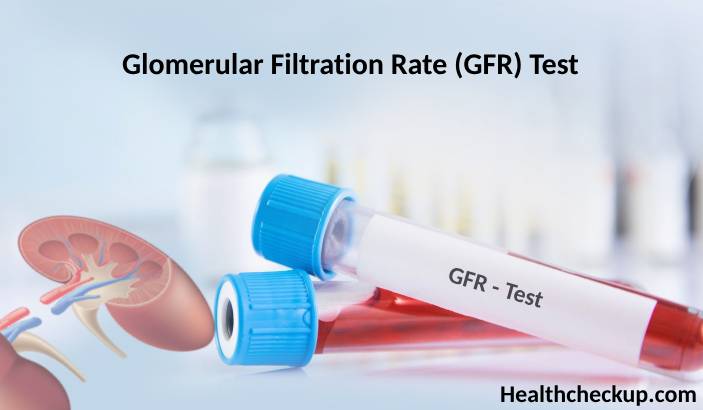The Glomerular Filtration Rate (GFR) test is a critical measure of kidney function, providing a precise assessment of how well the kidneys are filtering blood. It’s considered the best indicator of kidney function, crucial for detecting kidney disease in its early stages when treatment can be most effective.
Purpose of the GFR Test
- Assessment of Kidney Function: The primary purpose of the GFR lab test is to determine how well the kidneys are filtering small molecules like creatinine out of the blood.
- Diagnosing Kidney Diseases: GFR is used to diagnose and monitor the progression of kidney disease.
- Evaluating Kidney Damage: The test helps evaluate the extent of kidney damage and monitor the effectiveness of treatment for kidney disease.
- Drug Dosage Adjustments: It assists in adjusting the dosages of medications that are excreted through the kidneys, particularly in patients with diminished kidney function.
Preparation for the Test
- No Special Preparation Needed: Generally, no fasting or special preparation is required for the GFR test, which is often calculated based on a blood sample.
- Stay Hydrated: Adequate hydration is encouraged unless instructed otherwise by a doctor.
- Medication and Health Review: Informing healthcare providers about all medications, supplements, and underlying health conditions is essential as they can influence GFR.
Procedure of the GFR Test
- Blood Sample Collection: The most common method involves taking a blood sample to measure the creatinine level, a waste product that kidneys filter out.
- Creatinine Clearance Test: Occasionally, a more precise measurement involving a 24-hour urine collection and a blood test may be used.
- Estimated GFR (eGFR): More commonly, the GFR is estimated from the blood creatinine level using a formula that accounts for age, sex, race, and other factors.
GFR Normal Range
- General Range: A normal GFR varies according to age, sex, and body size. Generally, a normal GFR is above 90 mL/min/1.73m².
- Age Adjustments: GFR decreases with age, so lower values may be normal for elderly patients.
Results Interpretation
- Normal Results: Indicates good kidney function and that the kidneys are effectively filtering blood.
- Decreased GFR: A GFR lower than 60 mL/min/1.73m² for three months or more typically suggests chronic kidney disease (CKD).
- Severe Kidney Impairment: A GFR lower than 15 mL/min/1.73m² indicates kidney failure or end-stage renal disease requiring dialysis or transplantation.
- Follow-Up: Results outside the normal range generally require further testing and monitoring to understand the cause and to manage the condition effectively.
The GFR test is a vital tool in the management of kidney health, crucial for diagnosing kidney disease early and managing conditions effectively to prevent progression. With minimal preparation and low risk, it offers invaluable insights into kidney function, guiding treatment and medication management.
I specialize in writing about health, medical conditions, and healthcare, drawing extensively from scientific research. Over the course of my career, I have published widely on topics related to health, medicine, and education. My work has appeared in leading blogs and editorial columns.









